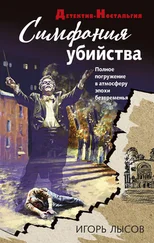Douglas Hofstadter - I Am a Strange Loop
Здесь есть возможность читать онлайн «Douglas Hofstadter - I Am a Strange Loop» весь текст электронной книги совершенно бесплатно (целиком полную версию без сокращений). В некоторых случаях можно слушать аудио, скачать через торрент в формате fb2 и присутствует краткое содержание. Жанр: Прочая документальная литература, на английском языке. Описание произведения, (предисловие) а так же отзывы посетителей доступны на портале библиотеки ЛибКат.
- Название:I Am a Strange Loop
- Автор:
- Жанр:
- Год:неизвестен
- ISBN:нет данных
- Рейтинг книги:4 / 5. Голосов: 1
-
Избранное:Добавить в избранное
- Отзывы:
-
Ваша оценка:
- 80
- 1
- 2
- 3
- 4
- 5
I Am a Strange Loop: краткое содержание, описание и аннотация
Предлагаем к чтению аннотацию, описание, краткое содержание или предисловие (зависит от того, что написал сам автор книги «I Am a Strange Loop»). Если вы не нашли необходимую информацию о книге — напишите в комментариях, мы постараемся отыскать её.
I Am a Strange Loop — читать онлайн бесплатно полную книгу (весь текст) целиком
Ниже представлен текст книги, разбитый по страницам. Система сохранения места последней прочитанной страницы, позволяет с удобством читать онлайн бесплатно книгу «I Am a Strange Loop», без необходимости каждый раз заново искать на чём Вы остановились. Поставьте закладку, и сможете в любой момент перейти на страницу, на которой закончили чтение.
Интервал:
Закладка:
I was naturally filled with gratification when the popularity of my book Gödel, Escher, Bach linked my name in some fashion in the musical community with that of Bach (this was a true honor), and in Bach’s 300th birthyear, 1985, I had the pleasure of participating in several tricentennial celebrations, including a tiny one on his exact birthday that I organized in Ann Arbor for the members of a class I was teaching, plus a few friends, the highlight of which was the small firestorm unleashed when we lit all 300 candles on the giant birthday cake I had ordered.
Fifteen years later, I was surprised to be invited to participate in a commemoration in Rovereto, Italy, of the 250th anniversary of Bach’s death (which had taken place in July of 1750), but since I was going to be in northern Italy at that time in any case, I gladly accepted. Several memorable talks were delivered in the afternoon, and after a banquet there was to be a treat — a performance of a number of Bach pieces (transcribed for small chorus) by a well-known singing troupe. I remembered their skill and was looking forward to a rewarding evening of moving music.
What I heard, however, was something quite different, although I should perhaps have anticipated it: a nonstop display of unrestrained vocal virtuosity, and nothing but that. It was terribly impressive, but to my mind it was also terribly vapid. The lowlight of the entire performance for me was when the singers came to one of the most profound of all the Bach organ fugues — the G minor fugue often called simply “The Great” (BWV 542), a work that I loved as played by Albert Schweitzer in all his modesty, but with unrivaled depth of feeling. Regrettably, I will never forget how they tackled this meditative fugue at roughly twice the speed it should be taken at, lighting into it as if they were sprinting to catch a train, and struttin’ their stuff like nobody’s business. They bounced on their toes, as if to try to get the audience to swing along with their snappy rhythm, and they even snapped their fingers to the beat (even the word “beat” sounds ridiculous in this hallowed context). Several of the singers periodically flashed bright grins at the audience, as if to say, “Aren’t we fabulous? Ever heard anyone sing so many notes per second in your life? How about those trills! Isn’t this music sexy? Hope you’re all diggin’ it! And don’t forget, we have lots of CD’s you can buy after the show!”
All of this threw me for a real loop. Of course there is room in this world for many ways to perform any work of music, and of course there was something interesting about these singers’ speed and slickness, and the way that they executed ultrarapid trills flawlessly — it was impressive in much the same way as the engineering details of a beautiful sports car are impressive — but for me it had nothing to do with the meaning of the music. That meaning was contemplative and cosmic, not frilly and show-offy. I am tolerant of many diverse ways of playing pieces of music, but I also have my limits and this went considerably beyond them. It made me long to hear the slightly flawed, very mortal, and reflective profundity of Albert Schweitzer at his little village organ in Günsbach, but that was not in the cards that evening. It was a classic case of sacred versus profane, and it remains vivid in my memory.
Only in preparing this chapter did I come across some writings by Schweitzer himself that strangely echo (if echoes can precede their causes!) my great troubledness that evening in Rovereto. Here is what he wrote, almost one hundred years earlier, about performances of Bach in that era:
Many performers have been performing Bach for years without experiencing for themselves the deepening that Bach is capable of bringing out in any true artist. Most of our singers are far too caught up in technique to sing Bach correctly. Only a very small number of them can reproduce the spirit of his music; the rest of them are incapable of penetrating into the Master’s spiritual world. They do not feel what Bach is trying to say, and therefore cannot transmit it to anyone else. Worst of all, they consider themselves to be outstanding Bach interpreters, and have no awareness of what it is that they lack. Sometimes one has to wonder how listeners who attend such superficial performances are able to detect even the slightest sign of the depth of Bach’s music.
Those who understand the situation today will not consider these comments to be exaggeratedly pessimistic. Our enchantment with Bach is undergoing a crisis. The danger is that our love for Bach’s music will become superficial and that too much vanity and smugness will be mixed in with it. Our era’s lamentable trend towards imitation comes out also in the way that we take Bach over, which is all too visible these days. We act as if we wanted to praise Bach, but in truth we only praise ourselves. We act as if we had rediscovered him, understood him, and performed him as no one has ever done before. A bit less noise, a bit less “Bach dogmatism”, a bit more ability, a bit more humility, a bit more tranquility, a bit more devotion… Only thus will Bach be more honored in spirit and in truth than he has been before.
There is little I can add to this trenchant criticism of superficiality taking itself for depth; I will simply say that running across it comforted me, even though I did so several years after the Rovereto event, as it made me know that I am not alone in my lamentation. Schweitzer was the most humble and self-effacing of people, and so his remarks have to be taken as nothing other than an honest reaction to a deplorable trend that was already clear a century ago and that seems only to be increasing today.
Alle Grashüpfer Müssen Sterben
What, some readers may be asking themselves, does any of this have to do with “I” or consciousness or souls? My response would be, “What could have more to do with consciousness or souls than merging oneself with the combined spirituality of Albert Schweitzer and J. S. Bach?”
The other night, in order to refresh my musty memories of Schweitzer playing Bach organ music (which I listened to hundreds of times in my teen-age years and my twenties), I pulled all four of the old vinyl records off my shelf and put them on in succession. I began with the prelude and fugue in A major (BWV 536, nicknamed by Schweitzer the “walking fugue”) and went through many others, winding up with my very favorite, the beatific prelude and fugue in G major (BWV 541), and then as a final touch, I listened to the achingly sweet–sad chorale-prelude “Alle Menschen Müssen Sterben” (“We All Must Die” — or perhaps, in order to echo the trochaic meter of the German, “Human Beings All Are Mortal”).
While I was sitting silently in my living room, listening intently to the soft notes of these fathomless meditations, I noticed a lone grasshopper sitting on the rug. At first I thought it was dead (after all, all grasshoppers must die, too), but when I approached, it took a big hop, so I quickly grabbed a glass bowl from a nearby table, flipped it over to trap the little jumper, then carefully slid a record cover underneath, so as to form a floor for this glassy room. Then I carried the improvised craft and its diminutive passenger to my front door, opened it, and let the grasshopper leap down onto a bush in the dark night. Only while I was in the middle of this minisamaritan act did the resonance with Schweitzer’s spirit cross my mind — in fact, it happened just as I slid the record cover, which has a drawing by Ben Shahn of Schweitzer at the organ, underneath the glass bowl, so that the grasshopper was sitting on Schweitzer’s hand. Something felt just right about this fortuitous conjunction.
An hour or so later, as I got up to stretch, I chanced to notice a carpenter ant crawling under a table, and so once again I made a little transport vehicle for it and escorted my six-legged friend outside. It started to seem rather curious to me that all this mini-samaritanism was happening while I was so immersed in Bach’s profound spirituality and Schweitzer’s pacifistic mentality of “reverence for life”.
Читать дальшеИнтервал:
Закладка:
Похожие книги на «I Am a Strange Loop»
Представляем Вашему вниманию похожие книги на «I Am a Strange Loop» списком для выбора. Мы отобрали схожую по названию и смыслу литературу в надежде предоставить читателям больше вариантов отыскать новые, интересные, ещё непрочитанные произведения.
Обсуждение, отзывы о книге «I Am a Strange Loop» и просто собственные мнения читателей. Оставьте ваши комментарии, напишите, что Вы думаете о произведении, его смысле или главных героях. Укажите что конкретно понравилось, а что нет, и почему Вы так считаете.












